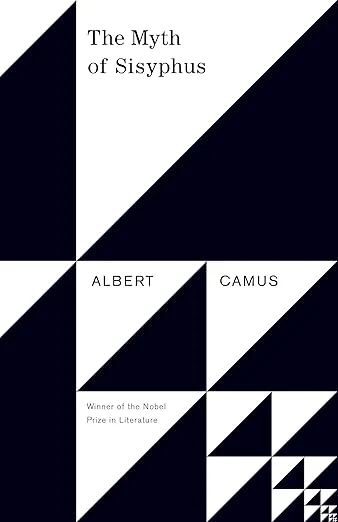
https://www.amazon.com/Myth-Sisyphus-Vintage-International-ebook/dp/B07HLQQZ3L
Introduction Link to heading
In “The Myth of Sisyphus”, Albert Camus tackles life’s biggest question: What’s the point of it all?
His answer is simple and odd: there isn’t one — at least, not an essential or universal one.
Camus introduces the concept of the absurd: the connection between humanity’s never-ending search for meaning and the silence of the universe.
Instead of giving up, he argues for a more radical response — revolt.
Absurd Freedom and the Heroes Link to heading
By accepting the absurd, we achieve freedom. Without preordained meaning, we create our own purpose. Camus presents three heroes of the absurd:
- Don Juan — the lover who embraces fleeting pleasures.
- The Actor - living many lives, knowing they’re all temporary.
- The Conqueror — thriving in action without concern for eternity.
When I read this, it struck me: I’ve tried all of these roles. I’ve pursued fleeting moments, lived multiple lives in a single lifetime, and sought meaning through action. It was surprising to see these types celebrated as the way forward. If this book were written today, we might add modern heroes of the absurd:
- The Salesman - Promoting dreams even though they’re not real.
- The Influencer - Following the trend and being the leader of it.
- The Founder - Being always in the tomorrow and constantly solving the today.
Sisyphus and the Samsara Wheel Link to heading
Camus uses the myth of Sisyphus as a metaphor for the human condition. Condemned to roll a boulder uphill for eternity, Sisyphus represents life’s repetitive struggles. For Camus, the key isn’t escaping the cycle but embracing it. Sisyphus becomes a hero not by overcoming absurdity, but by accepting and defying it. Camus concludes: “One must imagine Sisyphus happy.”
To me, Sisyphus echoes the Buddhist concept of the samsara wheel — a cycle of endless repetition. The difference? Buddhism aims to escape the cycle; Camus tells us to thrive within it.
So, what’s the point? Link to heading
Camus gives no easy answers, and that’s the beauty of his philosophy.
- Accept the Absurd — Life and death are facts, not problems to solve.
- Create Your Meaning — Engage with the world and define your purpose.
- Live Fully — Embrace every moment, every challenge, without illusions.
- Revolt — Face the absurd with defiance, not resignation.
This book reminded me that life isn’t about solving absurdity but living it. It’s about playing the game as a hero of absurdity. Knowing that our lives are in our hands and each day we can decide to continue or not gives it firmness and confidence.